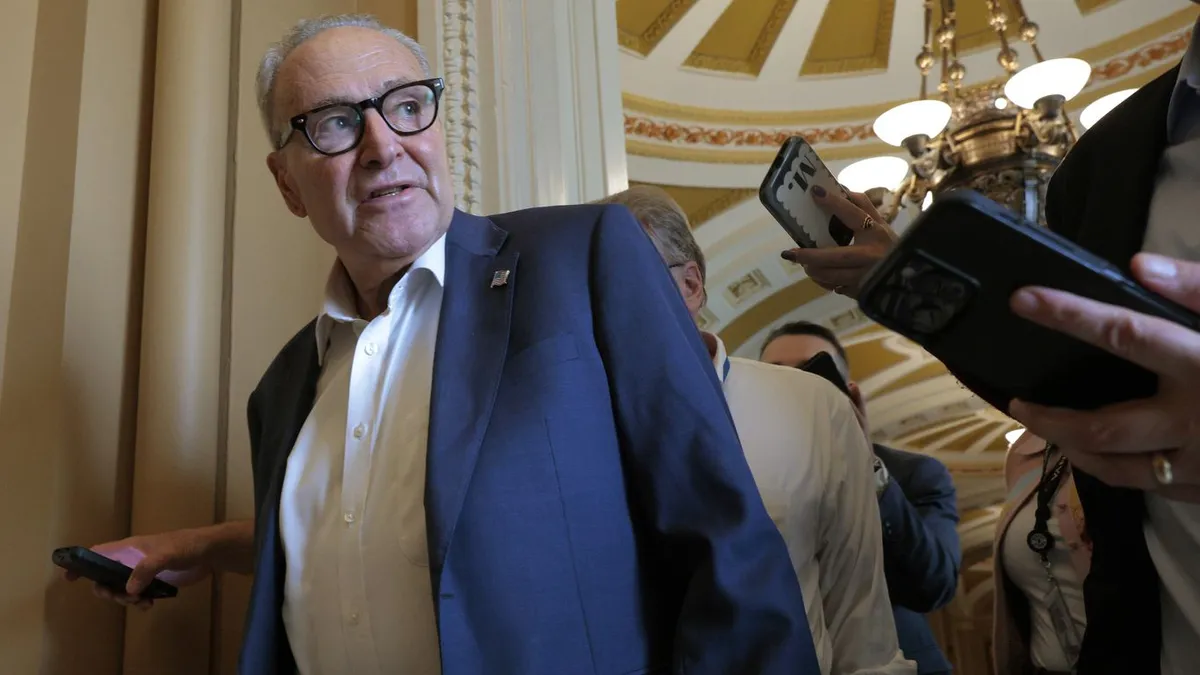
Senate Minority Leader Chuck Schumer (D-N.Y.) is actively engaging his Senate colleagues regarding a potential spending bill aimed at reopening the government for a brief period of seven to ten days. This initiative comes as concerns mount over a potential government shutdown set to occur on October 1, according to sources familiar with the discussions.
Schumer's proposed Plan B is a strategic response to the anticipated government shutdown. As he and Senate Democrats begin to formulate a strategy to navigate this crisis, the short-term spending bill they are considering would necessitate unanimous consent within the Senate. This requirement places pressure on Majority Leader John Thune (R-S.D.) and House Republicans to reconsider their current plan, which involves a longer seven-week funding bill.
The conversations among Schumer and his fellow Senate Democrats are still in the initial stages. However, Schumer continues to publicly insist that Republicans must agree to reverse some of the previous spending cuts implemented during Trump's presidency. Additionally, he is advocating for new funding aimed at premium health care tax credits in return for Democratic support for the proposed seven-week spending package.
In a significant development, Schumer is scheduled to meet with President Trump at the White House later today, alongside other key congressional leaders. This meeting is critical as it could influence the direction of the ongoing discussions about government funding. Meanwhile, Speaker Mike Johnson (R-La.) has made it clear that the House, which has already passed a clean continuing resolution to fund the government for seven weeks, will not take further action until the Senate makes its move.
Thune supports the House's approach and has expressed his unwillingness to agree to a long list of Democratic demands for the seven-week funding bill. However, he has indicated a willingness to discuss the tax credits at a later date, which could open the door for negotiations down the line.
In a recent briefing, Johnson informed his colleagues that he does not intend to bring them back to Washington, D.C. this week. Schumer's proposed strategy could complicate Johnson's calculations and scheduling, potentially leading to a more challenging legislative environment as the deadline approaches.
As the political landscape evolves, the implications of a potential government shutdown extend beyond mere funding issues. A reality check on shutdown economics reveals the broader consequences for federal services and economic stability, making it imperative for lawmakers to find a resolution swiftly.